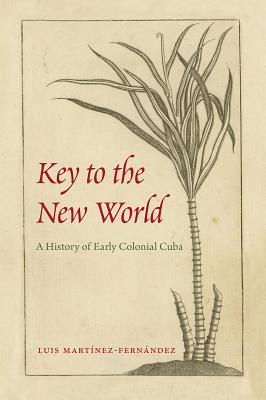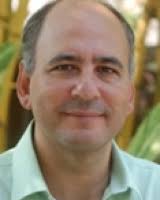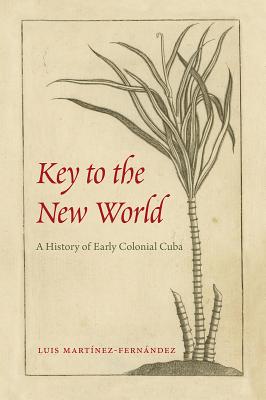
Key to the New World:A History of Early Colonial Cuba
Interview with Luis Mart�nez-Fern�ndez
November 28, 2021Sign Up to listen to full interview.
About Luis Mart�nez-Fern�ndez
Dr. Luis Martínez-Fernández is a historian, university professor, author, consultant and public speaker, whose fields of expertise include Latin America, the Caribbean, education, and Latino / Hispanic politics, culture, and society.
Born in Havana, Cuba and raised in Lima, Peru and San Juan, Puerto Rico, he holds B.A. and M.A. degrees in History from the University of Puerto Rico and a Ph.D. in History from Duke University.
He is recognized as one of the most prolific and influential scholars in the field of Caribbean Studies. His publications include articles in Cuban Studies, Slavery and Abolition, Latin American Research Review, The Americas, Caribbean Studies, History Today, and in numerous anthologies and edited volumes.
His books include: Fighting Slavery in the Caribbean, Revolutionary Cuba: A History, widely acclaimed as the most comprehensive and systematic study on the subject ever written, and Key to the New World: A History of Early Colonial Cuba, winner of the 2018 Florida Book Awards' Bronze Medal for Nonfiction and the 2019 International Latino Book Awards Gold Medal for History.
Martínez-Fernández served as trustee of the College Board (2009-2015) and in numerous professional, editorial, and community boards, among them the Cuban Studies journal, the South Atlantic Humanities Center, the Community Advisory Board of WMFE (Central Florida's NPR station), and the Executive Committee of the Board of Directors of the Historical Society of Central Florida. In 2005 he founded the annual Latin American Cultural Festival of Orlando.
In March 2019, he joined the Board of Directors of the National Council for History Education and assumed the role of Board Secretary. He also serves on the International Board of Advisors of United Planet.
He writes a weekly nationally syndicated column for Creators Syndicate.
Research Interests
Latin America, the Caribbean, Cuba and Puerto Rico, Latinos in the United States
Education
Ph.D. in Latin American History from Duke University (1990)
M.A. in History from University of Puerto Rico (1985)
B.A. in History from University of Puerto Rico (1982)
Source: University of Central Florida
Interview Summary
The Caribbean island nation of Cuba is famous for its pristine beaches, warm weather, and multicultural society, but very little is known about its early history. In fact, the last book that covered the island’s history during the 16th and 17th centuries was published in 1916.
Before the arrival of Columbus in 1492, this vast island with mineral and natural wealth was largely inhabited by several groups of Amerindian indigenous people. Unlike the popular belief of a deserted island, at least 100,000 indigenous people lived on the island and estimates run as high as 400,000. Yet, after the arrival of Europeans, within a few decades most of the native inhabitants came close to extinction.
Over the next three centuries a constant stream of arrivals included invading soldiers, pirates, privateers, corsairs, religious supremacists, white settlers and traders from Spain and Europe, as well as hundreds of thousands of African slaves. The lethal cocktail of indigenous parasitic illnesses, European infectious diseases, and African pathogens not only decimated Cuba’s indigenous population but it also wreaked havoc among Europeans and produced high mortality rates among slaves.
This is the story of clashing and melding of Amerindian, African, and European cultures, Spanish military conquests, Atlantic wars, rapacious looting of natural wealth, and brutal annihilation and eventual subjugation of native Cubans. It is also a story of the bitter legacy of sugar and slavery, tobacco, cattle hides, and precious wood and spice trade, Cuba’s strategic location and its role in connecting South America and Europe.
To understand better the revolutionary or contemporary Cuba we must understand what came before.
Key Topics
1. What was Cuba like in the pre-Columbian era through the end of the 17th century?
2. What role did Cuba’s geography play in the development of the country’s history and culture?
3. Who were the indigenous inhabitants of Cuba and what was the nature of interaction among different Amerindian groups? What were the migration patterns in Cuba before the arrivals of Europeans? How has cultural advancement progressed?
4. How large was this group of people in Cuba and in the region before contact with the Europeans around 1492?
5. What were the first encounters between the Europeans and indigenous populations of the Americas like in the broader context of Europe in transition between the Middle Ages and Renaissance?
6. How multifaceted and multidirectional was the exchange between Europeans and indigenous Americans?
7. How and why was Cuba manufactured? What institutions, laws, and practices did Spain use to prop up the emerging colonial state and social pyramid?
8. What was the ethnic and social landscape of the emerging colonial society and how did different groups of people interact? How did the two Cubas interact with each other?
9. How was mercantilist and urban Cuba different from the rural and rebellious east of the island?
10. How did transculturation lead to the forging of the emerging colonial society of Amerindians, Europeans, and Africans?
11. How did Cuban ports and Spanish-flagged vessels suffer from various forms of piracy?
12. How did Spaniards and creoles defend the trade routes of Cuba?
13. What was the bitter legacy of the sugar revolution that swept much of the Caribbean and Cuba starting in 1640?
14. How did sugar and slavery binomial lead to a distinctive socioeconomic system of sugar plantation?

